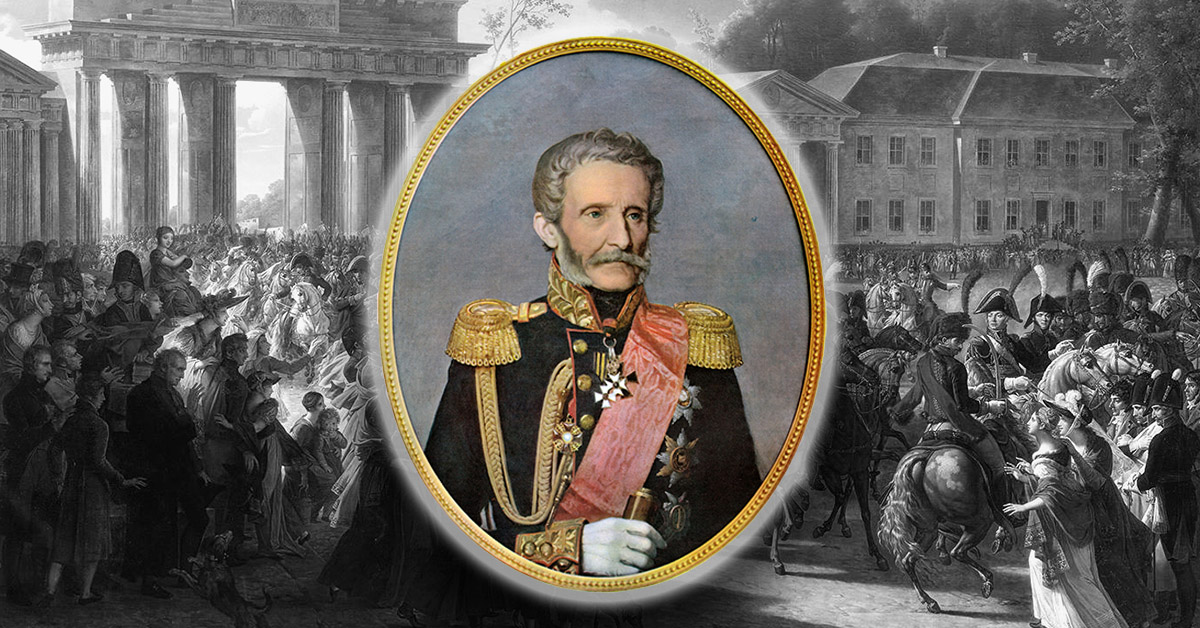
EDITOR’S NOTE: The current temporary theme we are using only credits a single guest. This podcast featured Bill Johnsen, Conrad Crane and Jacqueline E. Whitt.
In this episode in our Great Strategists series, U.S. Army War College historians Bill Johnsen and Con Crane present one of the more enigmatic figures in military theory, Baron Antoine-Henri Jomini. Historians have given Jomini mixed reviews in terms of evaluating his theories and contributions, but almost all recognize his influence.
Modern analysts often pit Jomini and his contemporary, Carl von Clausewitz, as polar opposites, creating “Jominian” and “Clausewitzian” camps. In reality, both were informed by their experiences with the Napoleonic Wars, but they took different perspectives–Clausewitz from the Prussian perspective, Jomini from the French. And while Clausewitz died in 1831, Jomini lived to be an old man and prolific writer, so you can see elements of Clausewitzian thought in Jomini’s writing. Still, Jomini was interested in finding general principles of warfare that could translate directly to success on the battlefield; a task that seemed simple when he could draw from observations of Napoleon’s greatest victories.
Bill and Con tell Jomini’s story, contributions to theories of war and relations with other thinkers, and the contemporary relevance of his ideas. WAR ROOM Editor-in-Chief Jacqueline E. Whitt moderates.
I see [Jomini] as one of the final products of the Enlightenment — the idea of this ability to find scientific principles … that anyone can use, [such as] in this case, war
Podcast: Download
Subscribe: Apple Podcasts | Spotify | Amazon Music | Android | Pandora | iHeartRadio | Blubrry | Podchaser | Podcast Index | TuneIn | Deezer | Youtube Music | RSS | Subscribe to A Better Peace: The War Room Podcast
Bill Johnsen recently retired as Professor at the U.S. Army War College.
Conrad Crane is a military historian with the Army Heritage and Education Center.
Jacqueline E. Whitt is Professor of Strategy at the U.S. Army War College and the Editor-in-Chief of WAR ROOM.
The views expressed in this presentation are those of the speakers and do not necessarily reflect those of the U.S. Army War College, U.S. Army, or Department of Defense.
Other releases in the “Great Strategists” series:
- WAR ON THE 21ST CENTURY BATTLEFIELD: REVISITING GENERAL STARRY’S CONCEPTUAL FRAMEWORK
- HORSESHOES, RELATIONSHIPS, AND SHARED UNDERSTANDING: CHESTER NIMITZ’S ART OF COMMAND
- BERNARD FALL: FORGOTTEN THEORIST OF WAR
(GREAT STRATEGISTS) - K.M PANIKKAR: INDIAN SCHOLAR, DIPLOMAT, STRATEGIST
(GREAT STRATEGISTS) - HOW MUCH FOR THE PEN? SCHELLING
(GREAT STRATEGISTS) - A SCIENTIFIC APPROACH TO WAR? ANTOINE-HENRI JOMINI
(GREAT STRATEGISTS) - THE NATURE AND CHARACTER OF WAR — THUCYDIDES
(GREAT STRATEGISTS) - BEYOND THUCYDIDES: HERODOTUS, XENOPHON & UNDERSTANDING WAR
(GREAT STRATEGISTS) - JOHN WARDEN AND THE ENEMY AS A SYSTEM
(GREAT STRATEGISTS) - JOHN BOYD AND THE “OODA” LOOP
(GREAT STRATEGISTS)





This is THE best discourse I’ve heard on Jomini (And Clausewiz and Napoleon, and even Mahan!). This discussion can easily be linked to studies of von Moltke and those who influenced him as well. As an instructor, I see so often that military practitioners pit these two against each other, but that is too simplistic.
Additionally, I very much appreciated the note on Jomini’s engineering approach to creating scientific solutions to the problem of untrained forces. In the context of a draft (and now a Total Force) as well as the rapid rate of leader progression in the Army, Jominian approaches, oft despised by students, take on more relevant and acceptable meanings. Thank you for this!
Good Afternoon,
In my compressed studies typical of the twenty-first century, I’ve just completed a one week study of Jomini and Clausewitz. I cannot imagine a better summary of my week’s studies than what I listened to in this podcast. If I were an instructional designer at Southern New Hampshire University I would make this podcast a required resource at the end of the week.
My greatest appreciation for this podcast which succinctly reviews both men.
Kind Regards,
Dave Zimmer (Vancouver, WA)